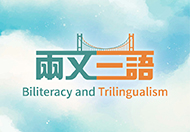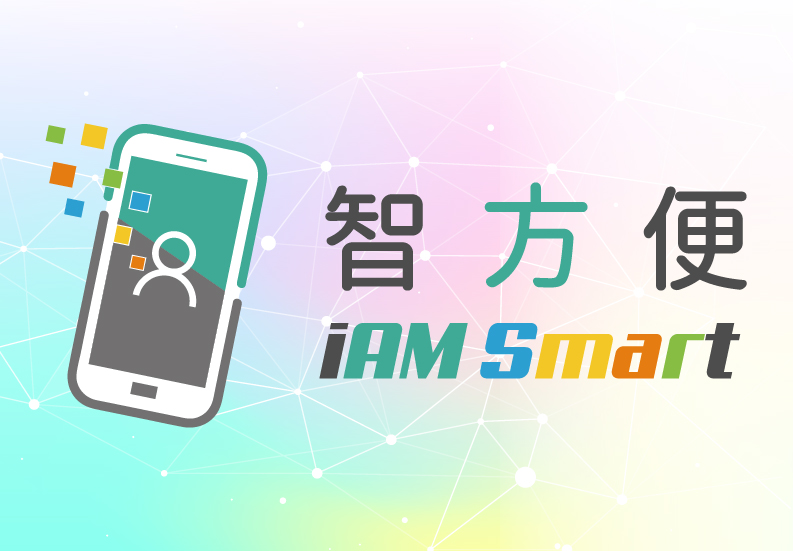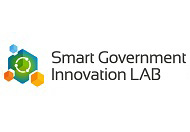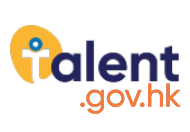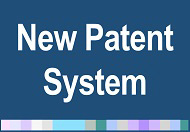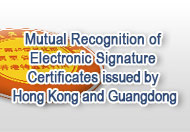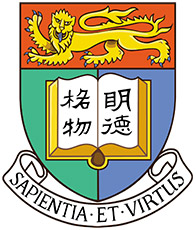
The University of Hong Kong
Faculty of Business and Economics
Faculty of Engineering
School of Computing and Data Science (affiliated with the Faculty of Engineering and the Faculty of Science)
Admission Requirements
General Entrance Requirements
| Core Subjects | Elective Subjects | |||
|---|---|---|---|---|
| English Language | Chinese Language | Mathematics | Citizenship and Social Development | Two Elective Subjects |
| Level 3 | Level 3 | Level 2 | Attained | Level 3& |
Programme Entrance Requirements
| Faculty | Study Programme | English Language | Mathematics | Extended Module of Maths (M1/M2) | Two Elective Subjects |
|---|---|---|---|---|---|
| Business & Economics | BBA(BA) | Level 4 | Level 3 | Level 3 or above in Extended Module 1 or Module 2 of Mathematics is preferred (but not required) | Level 3 in one of the following subjects:
|
| School Nominations Direct Admission Scheme (SNDAS) | |||||
| Engineering | BEng | Level 3 | Level 3 | Level 3 or above in Extended Module 1 or Module 2 of Mathematics is preferred (but not required) | Level 3 in two subjects (one subject in Biology, Chemistry, Combined Science, or Physics) |
| School Nominations Direct Admission Scheme (SNDAS) | |||||
| School of Computing and Data Science (affiliated with the Faculty of Engineering and the Faculty of Science) | BASc(AppliedAI) |
Level 4^ |
Level 4 | Level 4 | Level 3 in two subjects |
| School Nominations Direct Admission Scheme (SNDAS) | |||||
| BASc(FinTech) | Level 4^ | Level 3 | / | Level 3 in two subjects | |
| School Nominations Direct Admission Scheme (SNDAS) | |||||
| BEng(AI&DataSc) | Level 3 | Level 3 | Level 3 or above in Extended Module 1 or Module 2 of Mathematics is preferred (but not required) | Level 3 in two subjects (one subject in Biology, Chemistry, Physics, Economics, or Information and Communication Technology) | |
| School Nominations Direct Admission Scheme (SNDAS) | |||||
| BEng(CompSc) | Level 3 | Level 3 | Level 3 or above in Extended Module 1 or Module 2 of Mathematics is preferred (but not required) | Level 3 in two subjects (one subject in Biology, Chemistry, Physics, Economics, or Information and Communication Technology) | |
| School Nominations Direct Admission Scheme (SNDAS) | |||||
& Consideration of Elective Subjects
- The result of the Mathematics Extended Part (Modules 1 and 2) will be recognised as equivalent to that of a full elective in fulfilling the University Entrance Requirement on the condition that one of the elective subjects must be a Senior Secondary Subject (i.e. Category A Subject).
- "Attained with Distinction" obtained prior to 2018, or "Attained with Distinction (I)" or "Attained with Distinction (II)" obtained in or after 2018, in Applied Learning subjects (other than Applied Learning Chinese) will be used as additional supporting information. In the meantime, student learning experiences in Applied Learning subjects may be considered within the context of other learning experiences in their application.
- Other Language subjects will be used as unspecified elective subjects. The minimum requirement is Grade E.
^ Candidates with level 4 in English Language, if admitted, will be required to take 6 additional credits in Core University English to complete their degree studies.
Programme Structure
| Faculty | Study Programme | 4-year Curriculum | Graduation | |
|---|---|---|---|---|
| Business & Economics | BBA(BA) |
240 credits including:
|
BBA in Business Analytics |
|
| Engineering | BEng | First Common Year | Computer Engineering (Professional Core) | BEng in Computer Engineering |
| School of Computing and Data Science (affiliated with the Faculty of Engineering and the Faculty of Science) | BASc(AppliedAI) | 240 credits including:
|
BASc in Applied Artificial Intelligence |
|
| BASc(FinTech) | 240 credits including:
|
BASc in Financial Technology |
||
| BEng(AI&DataSc) | 240 credits including:
|
BEng in Artificial Intelligence and Data Science |
||
| BEng(CompSc) | 240 credits including:
|
BEng in Computer Science |
||
BASc in Applied Artificial Intelligence
BEng in Artificial Intelligence and Data Science
Useful Links
Internship Opportunities
Some of the companies / organisations in which the HKU students worked as interns on past three years:
| Engineering / Technology | Banking / Business | Government | Others |
|---|---|---|---|
| Alpha AI Technology Limited | eFusion Capital Limited | Hong Kong Applied Science and Technology Research Institute Company Limited | DrPOM Medical Care Limited |
| Eureka FinTech Limited | WorldQuant Consulting (Beijing) Company Limited | GoGo Tech Limited | |
| Jio Platforms Limited | Tamee (Hong Kong) Limited | ||
| Nvidia Singapore Pte Ltd, HK Branch | Time Medical Limited | ||
| PanopticAI Limited | |||
| REVOTECH Limited | |||
| Roborn Technology Limited | |||
| SmartAge Intelligence Limited | |||
| SOCIF Limited | |||
| Swivel Software Limited |
| Engineering / Technology | Banking / Business | Government | Others |
|---|---|---|---|
| Alibaba Cloud | Bank of China | Civil Engineering and Development Department | Chinese Academy of Sciences |
| Alibaba-Zhejiang Tmall Technology Co., LTD | Bowtie Life Insurance | HKSAR-Drainage Services Department | CLP Holdings Hong Kong Ltd. |
| Alpha AI Technology Limited | Deloitte | Hong Kong Observatory | DHL Express (Hong Kong) Limited |
| ASM Pacific Technology | Ernst & Young | Hong Kong Productivity Council | Double Happiness Noodle And Food Ltd. |
| Baidu | FWD Group Management Holdings Limited | Hong Kong Airlines | |
| ByteDance | Goldman Sachs Services (Asia) Limited | Hong Kong Science and Technology Park | |
| China Electric Power Research Institute | Hang Seng Bank Limited | MTR Corporation Limited | |
| China Unicom | Hong Kong Exchanges and Clearing Limited | Sun Hung Kai Real Estate Agency Limited | |
| Clear Robotics Limited | Hong Kong Monetary Authority | The Hong Kong Jockey Club | |
| HIKVISION | HSBC | University of British Columbia | |
| HKT Services Limited | J.P. Morgan Chase & Co. | University of Waterloo | |
| Huawei Tech. Investment Co. Limited | Jane Street | ||
| Microsoft (China) Co., Ltd. | Jefferies Hong Kong Limited | ||
| NTT Data Hong Kong Limited | JPMorgan Chase & Co. | ||
| Orient Overseas Container Line Limited | KPMG | ||
| Livi Bank Limited | |||
| Manulife | |||
| Morgan Stanley Hong Kong Limited | |||
| PwC | |||
| Qube Research & Technologies (QRT) |
Graduate Prospects
Career Prospects of BBA (Business Analytics):
Graduates of the BBA (Business Analytics) programme are expected to land on data and analytics related jobs in a wide variety of sectors such as IT, finance, supply chain, marketing, consulting, manufacturing, and so forth. They will also be competitive in pursuing post-graduate degrees in fields such as data science, information management, decision science, big data, etc.
Career Prospects of BASc in Applied Artificial Intelligence:
Graduates will gain a competitive advantage in both local and international job markets and become vital assets to organisations seeking intelligent strategies. Career prospects include opportunities in fields such as science and technology, environmental protection, medical informatics, health care, business, banking, finance, urban development, and neurocognitive science, among others.
Career Prospects of BASc in Financial Technology:
The programme prepares graduates with knowledge in both finance and technology. This would allow them to have a broad career pathway as they could take up positions in FinTech industry, finance industry, as well as IT industry. The finance and IT industries have a wide range of jobs for this talent group such as blockchain developer, apps developer, compliance expert, cybersecurity analyst, etc. Professionally, it is expected that graduates of the programme will become FinTech professionals, leaders in the FinTech industry, and researchers in the FinTech discipline. Graduates can also continue their studies by pursuing a master or doctoral degree in Hong Kong or overseas.
Career Prospects of BEng in Artificial Intelligence and Data Science:
Career prospects include positions such as data engineer/architect, data scientist, data analyst, machine learning engineer, big data engineer, business analyst and information security analyst.
Career Prospects of BEng in Computer Science:
Graduates of BEng in Computer Science programme are expected to become IT professionals in various sectors, including banking and finance, government, education, IT, and telecommunications. Some graduates also venture into entrepreneurship, starting their own businesses.








